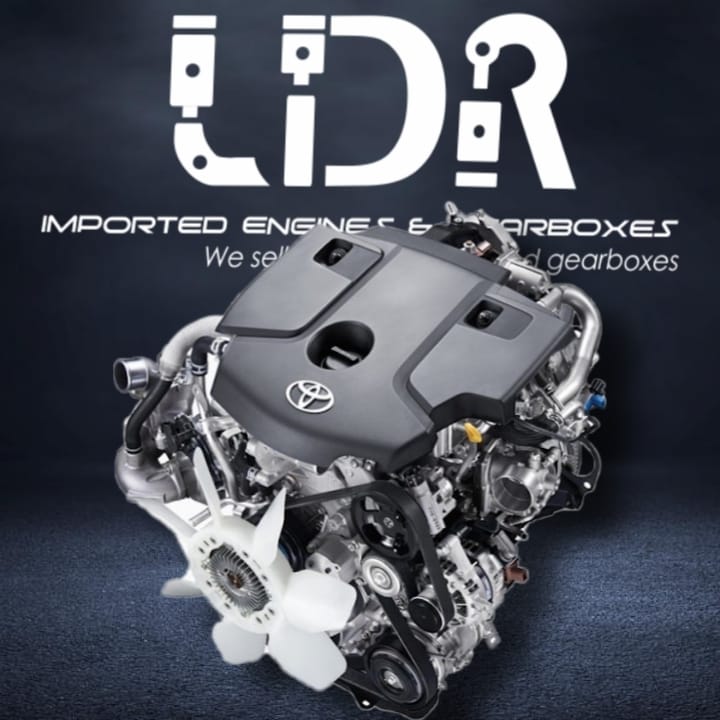Engine Acquiring Expert Tips on Selecting the Right Engine for Your Certain Demands
Picking the ideal engine for your certain demands includes a complicated interplay of aspects that go beyond plain horse power figures. By diving into the complexities of power versus effectiveness, evaluating gas ratings, and budgeting for long-lasting prices, one can truly maximize their engine choice.
Power Vs. Efficiency: Locating the Balance

When selecting an engine, it is crucial to strike an equilibrium in between power and effectiveness to meet your details demands successfully. Power refers to the engine's capacity to create energy for propulsion, determining variables like acceleration, hauling ability, and general performance (Toyota Tazz Engine For Sale). On the various other hand, effectiveness associates with just how well the engine uses gas to generate power, affecting elements such as gas economic climate and environmental kindness
Achieving the appropriate balance between power and effectiveness is necessary due to the fact that an engine that is as well powerful may eat extreme gas, resulting in greater operating expense and unneeded stress on the setting. On the other hand, an engine that focuses on efficiency over power might result in slow-moving performance, particularly sought after circumstances like lugging heavy lots or driving uphill.
To make an informed choice, consider aspects such as your typical driving problems, the desired use the lorry, and your personal preferences. By evaluating your concerns and needs, you can pick an engine that strikes the ideal equilibrium in between power and efficiency, making sure optimal performance while decreasing environmental effect and operating costs.
Comprehending Engine Dimension and Kind

Furthermore, engine kind plays an essential duty in identifying the performance attributes of an engine. Usual engine kinds consist of inline engines, V engines, and rotating engines, each with its one-of-a-kind advantages and disadvantages. The engine kind affects elements such as the engine's dimension, weight circulation, and power shipment. Understanding the interplay between engine size and type is important in choosing an engine that straightens with your specific demands and priorities, whether it be power, effectiveness, or an equilibrium of both.
Consider Your Vehicle's Demands
If you are looking for an engine for a durable truck that will certainly be made use of for towing, you will need an effective engine with high torque capacities. On the other hand, if you are selecting an engine for a small cars and truck primarily utilized for city travelling, gas efficiency may be an extra critical element to think about.

Evaluating Fuel Efficiency Rankings
Analyzing gas effectiveness scores is a critical facet of selecting the right engine for your lorry, ensuring price savings and ecological sustainability. Fuel efficiency rankings, commonly determined in miles per gallon (MPG) for gas engines or kilowatt-hours per 100 miles (kWh/100 miles) for electric engines, show exactly how far a vehicle can take a trip on a certain amount of gas or power. Higher MPG or lower kWh/100 miles worths represent more reliable engines, equating to decreased fuel prices and lower carbon emissions.
In addition, compare various engine options within the exact same lorry class to determine the most economical option. Variables such as engine size, weight, aerodynamics, and crossbreed or electrical capabilities can all affect gas efficiency.
Budgeting for Long-Term Expenses
Purposefully planning for long-term expenditures is imperative when selecting an engine, making sure economic sustainability over the car's life expectancy. While the initial purchase cost of an engine is a considerable variable, it is critical to take into consideration the lasting expenses connected with maintenance, fixings, and fuel consumption. Opting for a much more fuel-efficient engine may have a higher in advance expense yet can cause significant savings over time. Regular maintenance, such as oil changes, filter replacements, and tune-ups, is important to keep have a peek at this site the engine running smoothly and effectively, minimizing the danger of expensive repair work down the line.
In addition, investigating the availability and price of replacement parts for the chosen engine is important in More hints budget plan planning. By very carefully budgeting for these long-lasting costs and factoring them into the decision-making procedure, individuals can pick an engine that not only meets their immediate needs but likewise stays cost-effective throughout its life expectancy.
Conclusion
In final thought, picking the best engine for your details needs requires balancing power and efficiency, comprehending engine dimension and type, considering your car's needs, evaluating fuel effectiveness scores, and budgeting for lasting costs. By thoroughly taking into consideration these factors, you can guarantee that you select an engine that satisfies your demands and gives optimum efficiency for your vehicle.
To further fine-tune the choice procedure of an engine that strikes the optimum equilibrium in between power and performance, it is essential to delve into the complexities of comprehending engine size and kind. Engine dimension refers to the overall quantity of air and gas that can be pressed via the engine cylinders. Common engine types include inline engines, V engines, and rotary engines, each with its distinct advantages and disadvantages. Comprehending the interaction in between engine size and kind is essential in picking an engine that aligns with your particular requirements and concerns, whether it be power, performance, or an equilibrium of both.
Gas performance rankings, generally determined in miles per gallon (MPG) a fantastic read for fuel engines or kilowatt-hours per 100 miles (kWh/100 miles) for electrical engines, show just how much a lorry can take a trip on a details quantity of gas or electricity.